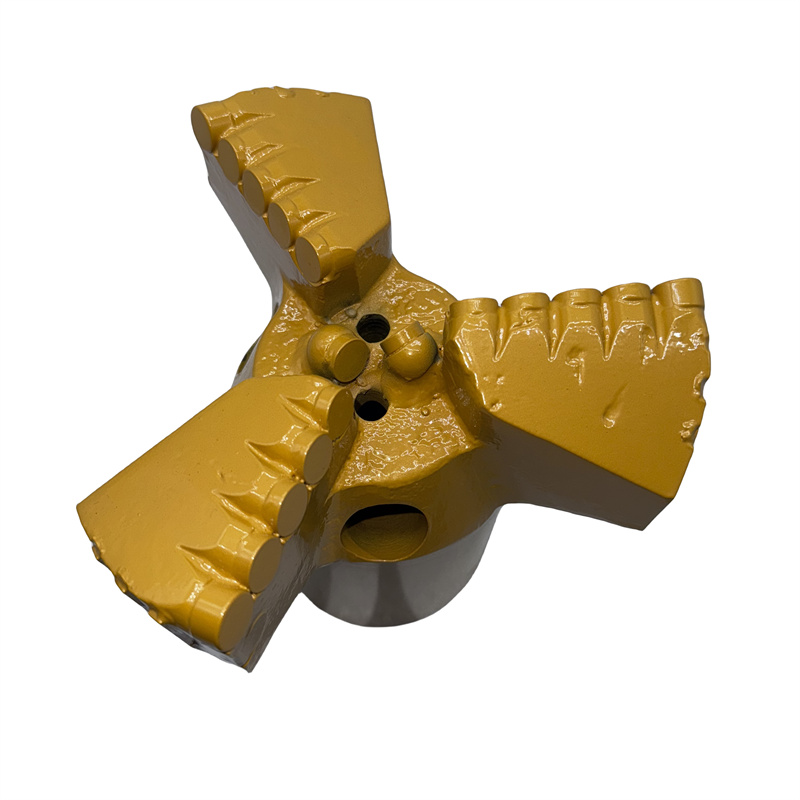Hammer Drilling Bits
Mechanism: Utilize a hammering action, often in conjunction with rotation, to break rock.
Best Suited For: Hard, abrasive formations like granite, quartzite, and some limestones.
Advantages:
High Penetration Rates: Effective in breaking through tough formations.
Good for Challenging Formations: Can handle abrasive materials that wear down other bit types quickly.
Disadvantages:
Higher Vibration: Can cause increased wear and tear on the drilling rig.
Potential for Damage: The impact force can sometimes damage the borehole wall.
PDC (Polycrystalline Diamond Compact) Drilling Bits
Mechanism: Utilize fixed cutters embedded with synthetic diamonds to shear and cut through rock.
Best Suited For: A wide range of formations, including soft, medium, and hard formations.
Advantages:
Fast Penetration Rates: Generally faster than hammer bits in many formations.
Longer Bit Life: Diamonds provide excellent wear resistance.
Smoother Drilling: Less vibration compared to hammer bits.
Disadvantages:
Can be More Expensive: PDC bits are typically more costly than hammer bits.
Less Effective in Extremely Hard, Abrasive Formations: In some cases, hammer bits may outperform PDC bits in extremely challenging conditions.
If you need water well drilling bits, click the link below to contact our professional team directly.

Comments
Post a Comment